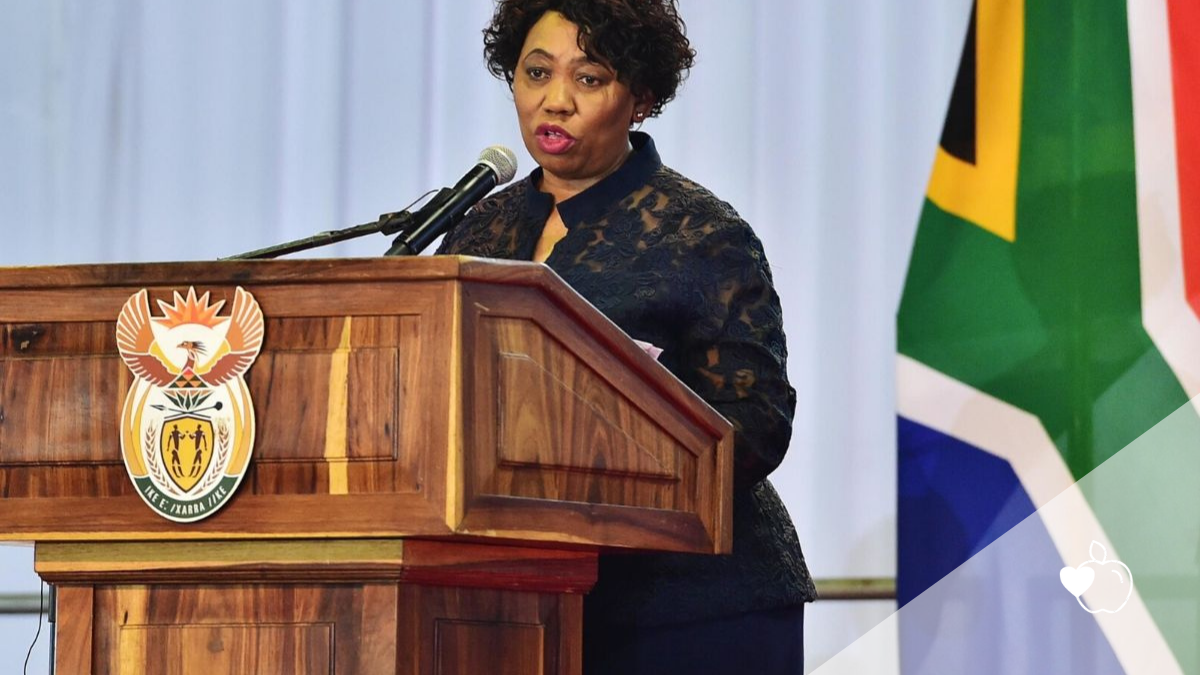Media statement by the Minister of Basic Education, Angie Motshekga, during a media conference at the Sunrise View in Rustenburg
Good morning ladies and gentlemen
At the outset, I must acknowledge the furore the postponement of yesterday’s media conference caused, and for that I sincerely apologise. Due to last minute changes to plans to start the teaching and learning for Grade 7s and 12s in public school, I was forced into a number of consultations with a number of key stakeholders with a direct interest in basic education, resulting in challenges to continue with the press briefing we had planned.
I had to urgently engage with, for instance, the association of school principals, the leadership of special schools, private and independent schools to manage the difficulties that these changes presented. I also had to communicate with the South African Human Rights Commission, which had also raised concerns about the resumption of classes today. I wish to apologise wholeheartedly for the inconvenience caused.
On 19 May 2020, I announced the phased-in reopening of schools as the 01 June 2020. Following that announcement, my department convened a number of meetings with Heads of provincial education departments, the Council of Education Ministers (CEM), teacher unions, national school governing body associations, the principals’ association, NGOs responsible for learners with special needs, assessment bodies, associations of independent schools, and other stakeholders with a direct interest in basic education. Some of these meetings, were convened on a weekly basis; and some, more than once a week.
The focus on these meetings was to collaborate with our key stakeholders to put in place measures to ensure the readiness of the system for the phased-in reopening of schools. As indicated in earlier media briefings, critical to the reopening of schools, was and still remains absolute compliance with the all health, safety and social distancing protocols pronounced by the Department of Health.
On 30 May 2020, the Council of Education Ministers (CEM) received three critical reports – the first, on the state of readiness from a research consortium coordinated by the National Education Collaboration Trust (NECT); the second, on the state of delivery of water tanks and water supply by Rand Water; and the third, a technical report from the Heads of Education Departments Committee (HEDCOM) on the state of readiness for the phased-in reopening of schools.
Based on these reports, it became clear that the sector was at different levels of readiness. In the main, it was for this reason that the CEM determined that the sector requires more time to mop-out its state of readiness for school reopening, in order to comply with the health and safety standards on COVID-19. CEM resolved that –
- Teachers, whose schools have already received the personal protective equipment, will be expected report for work on 01 June 2020, and prioritise the preparation of their schools to deal with the “new normal” brought about by the Corona Virus;
- Provinces should finalise all their outstanding deliveries of PPEs to schools, and the outstanding provision of water and sanitation to the schools;
- The ongoing cleaning of schools, should be finalised within the week of 01 June 2020;
- All teachers and support staff should be inducted and orientated for the new environment brought about by the COVID-19;
- In return, the teachers should induct, orientate and counsel the learners, who have already arrived at the schools, to deal with the new COVID-19 environments;
- Provinces should finalise the training of screeners, cleaners and volunteers for the national school nutrition programme (NSNP); and
- Processes related to independent schools, small schools and schools for learners with special education needs, should be managed with the representatives of these sectors.
The CEM decisions have since been shared with teacher unions, national school governing bodies associations, the principals’ association, NGOs responsible for learners with special needs, assessment bodies, associations of independent schools, and other stakeholders with a direct interest in basic education. It is important to note that the three reports that were presented to the Council of Education Ministers on 30 May 2020, were confirmed by the principals’ associations and the NGOs responsible for learners with special education needs.
Provinces are now putting the shoulder to wheel to ensure that all prerequisites not yet fulfilled, will be delivered within the week of 01 June 2020. We, together with our partners, have agreed to another urgent meeting on Thursday, 04 June 2020 to continue to monitor and evaluate all outstanding compliance imperatives.
In instances, where learners, especially those in boarding schools, have already arrived at schools, schools should use this opportunity to orientate and induct these learners on the “new normal” brought about by the Corona Virus.
It is critical that parents do not bring Grades 7 and 12 learners to school today; but teachers, whose PPEs have been delivered, are expected to report for work, and carry out the responsibilities I have already spelled-out. More importantly, the sector has agreed that effective teaching and learning, is expected to resume on 08 June 2020.
I have decided to take the nation to confidence with regards to the situation the Council of Education Ministers was faced; so that the nation can get a sense of what informed the decisions taken by the CEM to use this week to finalise all the work underway. I have since invited the National Education Collaboration Trust, which leads the research consortium to briefly speak to the report that informed our decision to postpone learning and teaching with a week. I have also invited Rand Water, an agency for the Department of Water and Sanitation, which is working with the DBE to ensure that indeed we can meet the challenges of providing water to our schools.
Based on their reports and that presented by HEDCOM, I am hopeful that all outstanding challenges they unearthed, will be addressed; and we can be able to have effective learning and teaching from 08 June 2020. Any further delays, pose a serious threat to the system and the future our learners are yearning for.
Before I can give the NECT, Rand Water and Director-General of the DBE an opportunity to briefly speak on the three reports, I wish to speak to the Directives with regards to Regulations on COVID-19 Alert Level 3.
On Friday, 29 May 2020, the DBE issued a Government Gazette with Directives regarding the reopening of schools, and measures to address, prevent and combat the spread of the coronavirus in the basic education sector. The Directives were issued in terms of regulation 4(3) of the Regulations, developed under the Disaster Management Act of 2002, as published on 29 April 2020.
The main objective of the Directions is to provide for arrangements for a phased return of educators, officials, learners and support staff to schools and offices.
Extract from the Directions
In terms of the movement of people between provinces, metropolitan areas, and districts, there will be a permit issued for officials and educators who, under Alert Level 3, have to commute to and from work on a daily basis. These permits will be issued by the Head of Department or a delegated official.
There will be a certificate issued to learners, who have to commute to and from school on a daily basis, which will be issued by a principal of a school, or a delegated person. The issuing of the certificates, must be done in compliance with the Regulations.
A person transporting a learner to school, must also be issued with a permit.
All extramural events at school, including sport, choral eisteddfod or choral rehearsals, arts and other cultural festivals, remain suspended until determined by the Minister, after consultation with the Cabinet and the National COVID-19 Command Council.
A parent, who chooses not to send a learner to school, must apply to the Head of the Provincial Education Department, who in the terms of the South African Schools Act, can exempt a learner entirely, partially or conditionally from the compulsory school attendance, if such an exemption is in the best interest of the learner.
A parent, who chooses not to send a learner to school, is obliged to apply for Home Education, in terms of the relevant section of the South African Schools Act.
We have been receiving many enquiries regarding the matric examinations. It is clear that there is a lot of anxiety on the matter, and we had to gazette it as well, since it is also an extremely sensitive matter in the basic education system. The May / June 2020 examination for candidates, who registered for the Senior Certificate and the National Senior Certificate, will be administered in November / December 2020; unless unforeseen circumstances occur, in which instance, I, as the Minister shall make the necessary determination.
As indicated in all previous media briefings, the health and safety of our learners, teachers and all employees within schools, are our major concern. It is for this reason that we must ensure that ALL schools comply with the minimum health, safety and social distancing measures on COVID-19, for a school to be allowed to reopen. Any school or office that does not comply with the minimum health, safety and social distancing measures, such a school or office will remain closed, until all the measures have been complied with. This, we do, to protect the rights of the people who use the facilities.
General safety measures at offices and schools for the duration of the state of disaster
In keeping with the focus on health and safety of our school communities, the Directives clearly state that all offices and schools, must develop a workplace plan. I must say that, in the schools we visited around the country, we found that COVID-19 Files had been created. We urge all schools to comply in this regard.
Parents and guardians, must not send learners to a school, if the learners show any of the Corona Virus symptoms. The screening of symptoms, must be conducted at offices or schools, according to the Department of Health Guidelines. We have since made these available to schools; and we urge all teachers and relevant officials to familiarise themselves with the Health Guidelines.
Any person, who enters an office or school, must be screened to ascertain whether they have any of the observable symptoms associated with the Corona Virus; such as fever, cough, and sore throat, redness of eyes, shortness of breath, or difficulty in breathing. Any person, who shows any of these symptoms, must immediately report such symptoms to the Compliance Officer.
We need to work extremely hard to comply, in order to prevent infections. There are steps that have been outlined in the Directives to help us prevent the spread of the Corona Virus. Every office and school, must have easily accessible and sufficient quantities of hand sanitisers, based on the number of learners, educators, officials or persons who access the office or school entrance. Offices and schools, must have facilities for washing hands with soap and clean water. The cleaning of surfaces and equipment is mandatory. A mask is a must in every instance. Offices and schools are required to provide a minimum of two cloth face masks to learners, educators, officials and support staff.
We have observed that schools have been working to reconfigure the physical environments – from the staff rooms to the classrooms, and the play areas. This is not a matter of choice, all of us must ensure that we comply with the social distancing requirements, in order to comply with the health and safety requirements.
Curriculum trimming and re-organisation
Since as of now. we have lost a whole term, and are likely to lose more days due to the Corona Virus, we had to be innovative in the manner we get the school programme back on track.
So, in order to recoup the teaching and learning time lost, the schooling system had to be re-engineered – resulting in the adjustment of the time-tables, and the review of the curriculum in terms of the National Education Policy Act; which empowers me, as the Ministers to determine a national policy for curriculum framework, core syllabuses and education programme. A curriculum work stream, consisting of curriculum experts from the department and from outside the department, is continuously managing this aspect of the re-engineering of the curriculum.
Because the basic education Directives are not static, we will always use the opportunity to make the necessary amendments, as and when required.
Conclusion
The National Lockdown has affected our lives on so many levels. Families are traumatised, jobs are lost, and schooling had grinded to a halt. The full impact of the Corona Virus, will surely be felt in many years to come. But the Corona Virus has changed the course of history the world over.
I would like to convey my and the department’s appreciation and thanks to members of Council of Education Minister, the Heads of Education Departments Committee, the diverse body of a very passionate and committed stakeholder grouping within the Basic Education Sector, and the private sector for their counselling and guidance
Thank you



